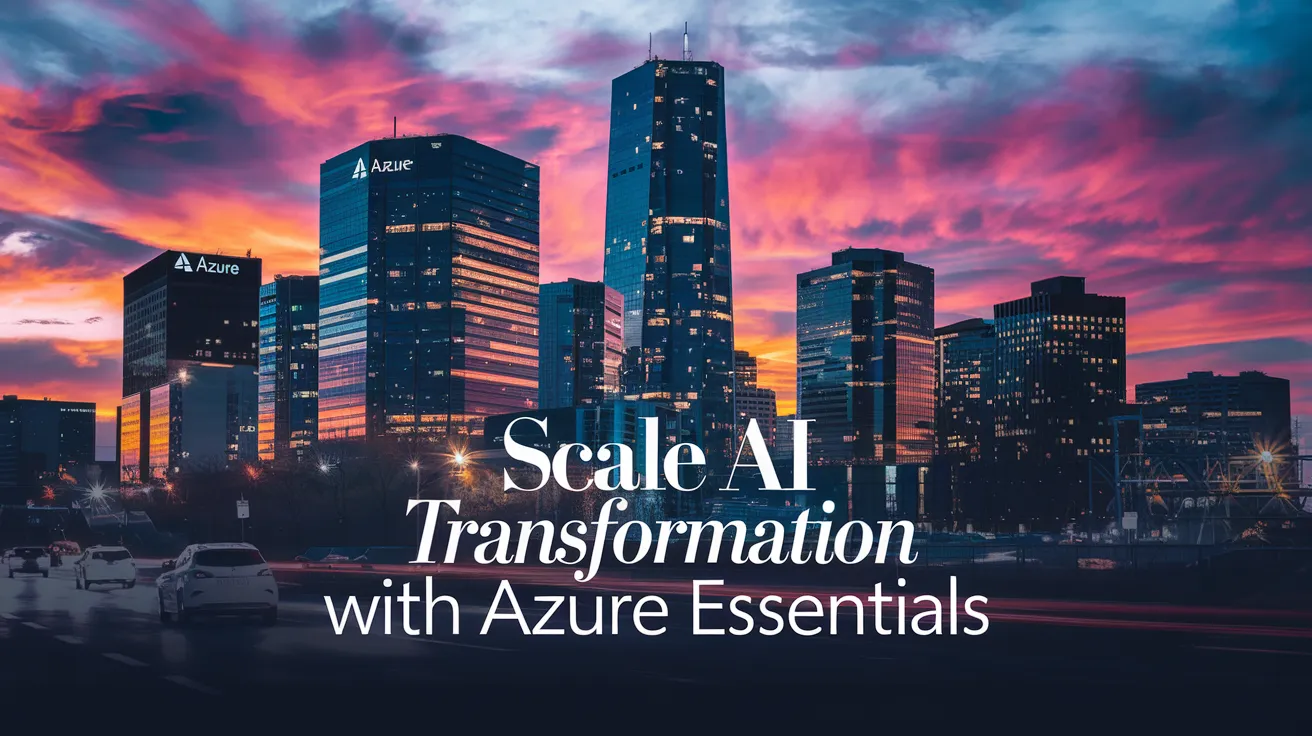Scale AI Transformation with Azure Essentials

For AI leaders and technical decision-makers facing the challenge of scaling AI within their organizations, the journey is fraught with difficulties. According to Microsoft’s annual report, The State of AI Infrastructure, a staggering 99% of organizations report difficulties in scaling AI initiatives, with only 33% of leaders confident in their AI skills and talent pool. This backdrop underscores the necessity of a comprehensive approach that blends technology, organizational change, and cultural shifts to expedite innovation.
Building on Azure Essentials
Last year, Microsoft launched Azure Essentials, a resource designed to provide extensive guidance on AI adoption, enabling organizations to implement AI at scale effectively. Since its debut, the AI adoption scenario within the Microsoft Cloud Adoption Framework and the AI workload guidance in the Azure Well-Architected Framework have garnered nearly 160,000 views, illustrating the demand for structured AI best practices.
Establishing an AI Center of Excellence
In response to the identified challenges, Microsoft has introduced new AI Center of Excellence (CoE) guidance to facilitate organizations in harnessing AI’s potential through structured approaches. An AI CoE serves as a strategic hub that fosters collaboration across various stakeholders and aligns technological and business objectives to create a cohesive vision for AI adoption.
Core Competencies of an AI CoE
The competencies outlined in the Implementing an AI Center of Excellence e-book assist organizations in recognizing the steps necessary to unlock AI’s full potential. These competencies include:
- Business Strategy: Ensuring alignment between business value, use case identification, and prioritization.
- Organization and Culture: Assessing readiness, establishing AI roles, and enhancing skills and knowledge management.
- AI Strategy and Experience: Focusing on use case implementation and mastering the AI lifecycle.
- Technology and Data Strategy: Addressing data practices, infrastructure management, and performance metrics.
- AI Governance: Promoting responsible usage of AI.
Industry Implementation Examples
Across various sectors, Microsoft partners are leveraging Azure Essentials and its AI CoE framework to streamline AI operationalization:
- NTT DATA has introduced Agentic AI Services for Hyperscaler AI Technologies, enabling clients to scale cloud environments effectively by integrating Microsoft’s AI CoE guidance.
- Capgemini is intensifying its focus on generative and agentic AI solutions, utilizing Microsoft’s structured guidance to enhance value for their customers.
- EY established a global sandbox to rapidly deploy AI use cases, transforming ideation into implementation across over 1,000 cases.
- PwC is collaborating with Microsoft to build and deploy intelligent, autonomous agents, fundamentally transforming workplace dynamics and boosting productivity.
Next Steps for Your AI Project
Creating an AI CoE is a pivotal move towards effectively executing AI projects on a large scale. For those ready to embark on this journey, consider utilizing Azure Innovate for expert assistance and technical guidance. Additionally, the curated Azure Essentials resource kit offers essential tools to support the development of secure, reliable, and cost-efficient AI solutions.
For further insights on establishing an AI CoE, the Implementing an AI Center of Excellence e-book provides crucial knowledge to empower teams. Moreover, Microsoft’s curated Azure skilling plan offers training to set up a thriving AI CoE.